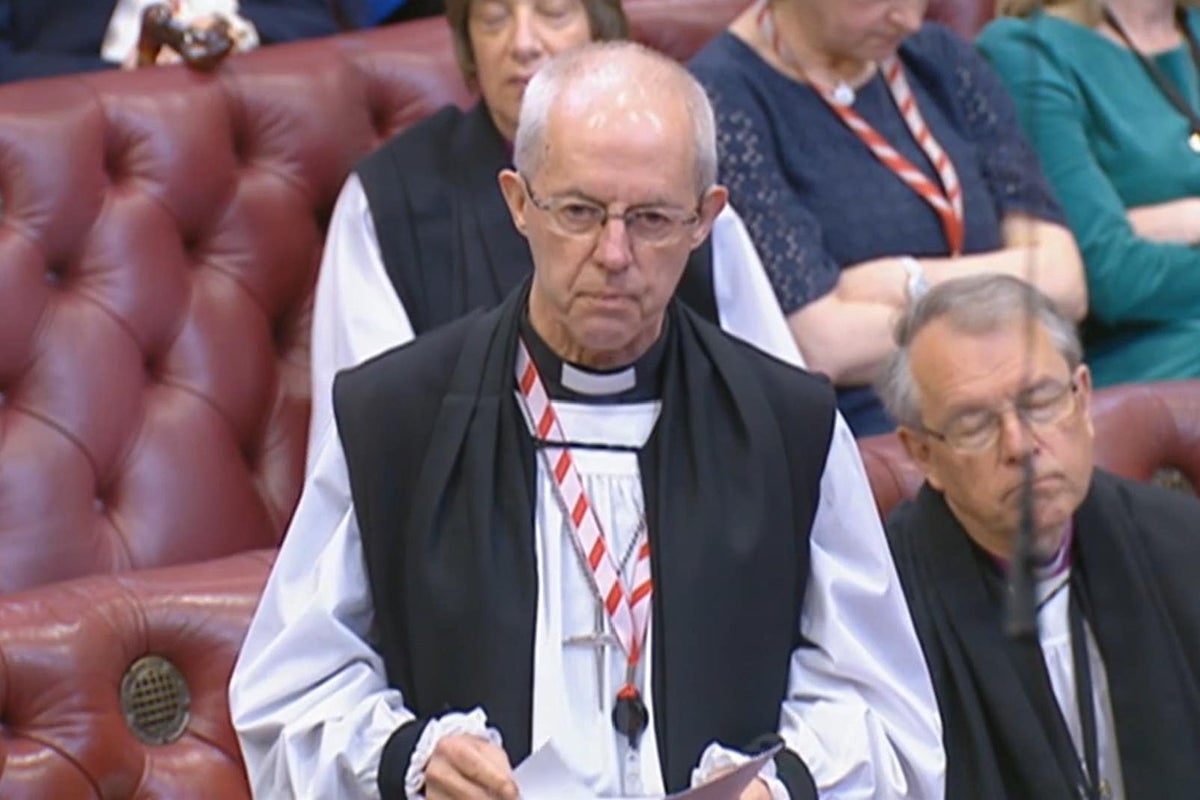
Bishops should have their “privileged” reserved position in the House of Lords removed, Parliament is to hear.
SNP MP Tommy Sheppard will lead a debate calling for Anglican bishops to no longer be granted guaranteed seats in the upper house of Parliament.
There are currently 26 seats in the House of Lords reserved for Church of England bishops.
Mr Sheppard believes it is unfair that the Church of England has a guaranteed role in Parliament, and will lead a Westminster Hall debate on Thursday about Bishops’ place in the House of Lords.
He told the PA News Agency: “I don’t think people should be represented in the Lords on the basis of their religious beliefs at all.
“We should have a secular legislature where people are either elected, or if they are appointed, they are appointed because of their expertise in general.
“That is not to say that people of faith can’t be in the legislature, either in the House of Commons or the House of Lords. Of course they could and they should.
“But it is to say they get no special fast track to that seat, there is no reserved place for them in the House of Lords, as there are at the moment for 26 Bishops.”
The 2021 census was the first time less than half the population of England and Wales described themselves as Christian, with a growing number claiming they had no religion at all.
Edinburgh East MP Mr Sheppard, who has been a “firm atheist” since he was a teenager, said Parliament needed to be aware of this change in public sentiment.
In recent months, bishops in the Lords have courted controversy with the Government by opposing its plans to tackle small boats crossing the English Channel.
The Archbishop of Canterbury Justin Welby has led attempts to water down the Illegal Migration Bill, and has faced calls from some Conservative MPs to stay out of sensitive political debates.
I think there is an argument for saying that their freedom to operate and freedom to criticise the Government would be enhanced if we disestablished the church and they gave up their Lords Spiritual role— Tommy Sheppard, SNP MP
In their role as lawmakers, the bishops are known as Lords Spiritual to contrast with other peers, who are referred to as Lord Temporal.
While Mr Sheppard acknowledged the SNP and Anglican bishops had taken a similar opposing stance on the Illegal Migration Bill, he said this was not a reason for them to remain in the Lords.
He told PA: “I would hope and expect that the bishops would continue to take a very strong moral stance on questions such as that, even if they weren’t lords of Parliament.
“In fact, I think there is an argument for saying that their freedom to operate and freedom to criticise the Government would be enhanced if we disestablished the church and they gave up their Lords Spiritual role.
“I don’t see it as diminishing their capacity to speak out, if anything it would enhance their capacity to speak out.
“Also, no one is suggesting that bishops shouldn’t be in the legislature. If they want to stand for election, if they want to put themselves through the House of Lords appointments process and be nominated, that is fine by me.
“I don’t seek to exclude people of faith from Parliament, I just say they shouldn’t have a special privileged section where they and only they inhabit this bunch of seats.”
Mr Sheppard, who chairs the humanist all-party parliamentary group, described the debate as the start of a conversation.
He added he hoped it could lead to a larger, fuller debate on the floor of the House of Commons later in the year.
A spokesperson for the Church of England said bishops who serve in the House of Lords provide “an independent, non-partisan voice in parliamentary debates, bringing an ethical and spiritual perspective that is also informed by their roles as key figures in local civil society”.
They added: “Their presence in Parliament not only reflects our constitutional arrangement, with an established church, but also provides an ethical and faith perspective on the business of the day, informed by the Church’s role as a Christian presence in all communities of England.
“They do not sit as a party, so have no whip or party-line to follow. Alongside their roles as bishops in the dioceses they serve, they play a full and constructive role in the House of Lords in its role of scrutinising and helping to improve legislation.
“They have been active in recent years on areas as diverse as curbing gambling-related harms; helping children and families in poverty; the needs of women in prison; preserving free speech and – as we see this week – questions around combatting people-smuggling and helping refugees.”







